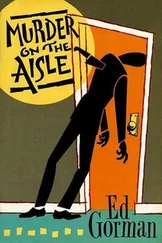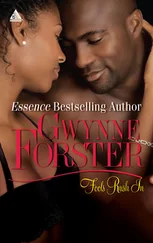But I always went because it meant I got to be alone with him. And he, or so my mom always said, could maybe forget for a while that my brother had died of polio.
What I liked best about being around him was his stories. His weren’t the kind that won you the biggest laughs on Saturday night front porches where the vets from the war gathered. He’d won himself some medals, but he never talked about them. At boot camp he’d saved a buddy’s life by dragging him mostly dead from a flooded river. But his stories were rarely about derring-do.
His favorite subject was how radio developed, and I expect just seeing those words set down like that you can see why my father was never a renowned bullshit artist.
But when he’d start talking about how he’d built his first crystal set and how he’d then raised money for his Depression-era family by building crystal sets for other families, it was fun to hear. And then he’d talk about the Red Network and the Blue Network and how for a long time there was never such a thing as a network that covered the United States all at the same time — the West Coast was usually recorded for later play — and how radio stars like Jack Benny and Edgar Bergen and Charlie McCarthy and the Shadow became just as big as any movie star.
He could also tell you the history of New Orleans jazz, the evolution of the cowboy movie from the silents to the singing cowboys, the days when Orson Welles was the radio voice of the Shadow, and the ten most memorable days of the big war, Pacific and European; all of it bedazzled me.
I remembered all this as I knelt next to the cot Mom had fixed up for him in the spare room after he got out of the hospital two weeks earlier, the nightstand holding a stack of his beloved Luke Short westerns and two bright yellow packages of Juicy Fruit for when he got the urge to smoke, an urge he would never be able to indulge again.
He slept peacefully, a small and tidy man, his hair gone all to white and that little Irish mug a bit impish even now. The doctor had told me but not Mom (and I wasn’t about to tell her, either) that with luck, Dad could live another six, seven months if he didn’t have any more major heart attacks. But even without an attack, his heart wasn’t going to hold out much longer.
I held his small, coarse, wrinkled hand now and touched my cheek to it. This was when I needed my boyhood faith, my blind certainty there was a God, and for a few moments I banished all cynicism and disbelief. Maybe it wasn’t like the believers said, all that angel stuff, but maybe we did live on in some fashion, the essence of each of us anyway, and then I couldn’t help it, I touched my cheek to his hand again and started crying.
“He’s looking good, isn’t he?” Mom said, serving my favorite, tomato soup and toasted cheese sandwich.
He had, of course, looked blanched, dead.
“He looks great.”
“I know you don’t go to Mass anymore, Sam, but I think you can see what all of us praying has done for your father.”
I nodded, spooned some more soup into my mouth. She finally started to eat and I watched her, still the possessor of her young-woman elegance even in a faded housedress; “the prettiest Irish girl of her time” the old monsignor had told me one day as I was cleaning up the altar after serving Mass. I’d wondered if he might have had a crush on her.
But there was no denying the weariness that claimed her. The step a little slower, the response to a question or a remark a few seconds late in coming, and something new of late, sighs so long extended they were like notes in dirges.
“He was talking to Robert again last night just like Robert was alive. He woke me up and I went into the spare room and stood over him and just listened. He was dreaming about that time he built that soapbox derby car for you boys. It was so wonderful hearing him talk like that. He seemed so happy.”
She put her hand on mine. “By the way, the judge called here for you late last night. She sounded — confused. I was very polite to her. I told her you hadn’t lived here in a long time.”
“She was drunk.”
“Yes, I’m afraid she was. She’s such a fine woman in so many ways. Maybe she needs help.”
“She does for sure. It’s getting her to accept it that’s the problem.”
And Mom said what she always says at such moments, “I’ll add her to my prayer list, honey.”
“Hi, is Nancy home?”
Mrs. Adams didn’t look happy to see me. She knew who I was and knew that my appearance on the doorstep of her large, Spanish-style home could not mean anything good.
“You’re Mr. McCain.”
“Yes.”
“We know the judge from our club.”
“I won’t keep her long.” I wanted to get on with it. I didn’t want to discuss her club or her rather extravagant house or her friendship with the judge.
Mrs. Adams was in her mid-forties, I guessed, so tanned from various trips that her skin was becoming lizardlike in places. She wore large sunglasses with white frames. They were girly and seemed frivolous on a face with a sharp, jutting nose and a mouth made for slander. In her blue walking shorts and sleeveless white blouse, she was every woman you saw playing golf at the country club.
“I think I’m going to refuse.”
“That’s your prerogative.”
“You don’t have a very good reputation with people at the club. They’ve been after the judge to fire you for several years now.”
A Negro maid in a crisp gray uniform appeared behind her in the air-conditioned shadows of the large house.
“Good day, Mr. McCain.”
“I need everything you can dig up on Nancy Adams.”
“She isn’t anybody I’ve ever heard of before.” I could hear Kenny Thibodeau take a deep drag of his cigarette. “I need to finish this chapter. I need to read up on lesbians, I guess. This is lesbian novel number nine and I’m running out of ideas for what they can do in bed.”
“That’s pretty much what happened to John Steinbeck, wasn’t it? Didn’t he run out of lesbian ideas for his books?”
“You’re just jealous you don’t have my career.”
“You know, in a weird way I am. I look at all your books in your trailer and I do feel a little pang. That you’ve been able to start and finish so many of them. The one time I tried to write a novel, I never got past page twenty.”
“I didn’t know that. How come you never told me?”
“Embarrassed, I guess.”
Then Kenny said, “I was going to talk to you later in the day, but I guess I might as well tell you now. You asked me to dig up what I could. So far I’ve got two real interesting things.
“The first thing is, Richie Neville had two places to work in. His cabin, and then he rented the upper floor of the Parker House, that supper club out on the highway. That was pretty much a secret.”
“How’d you find out about it?”
“That was pure Sherlockian fortitude, man. I called the photo shop where he bought all his supplies. The guy there said that he liked working with Richie and didn’t mind delivering to the cabin but that the Parker House took an hour back and forth.”
“Good work, Kenny. I have a plaque here with your name on it.”
“And then when I was in Iowa City last night, I went over to where David Leeds lived and asked some of his friends about him. They still can’t believe he’s dead.”
“Yeah, so what’s the one interesting thing?”
“You know his sister you were talking to?”
“Yeah?”
“They said he didn’t have a sister. He was an only child.”
“He was the perfect type of renter for us. Real quiet.”
“How much time did he spend here?”
“Couple of nights a week, two, three I’d guess.”
Читать дальше
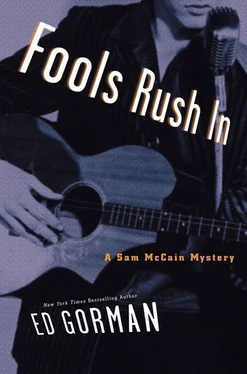
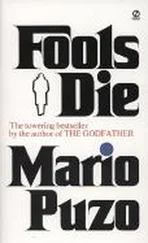

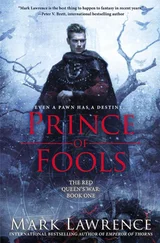
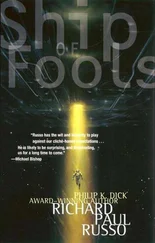
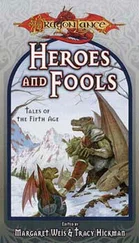
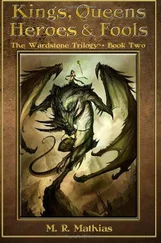

![Аманда Горман - The Hill We Climb [calibre]](/books/384311/amanda-gorman-the-hill-we-climb-calibre-thumb.webp)
